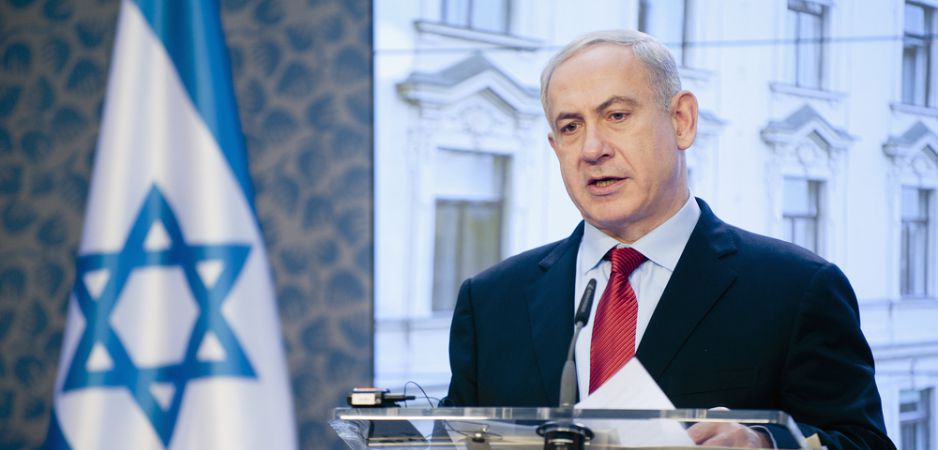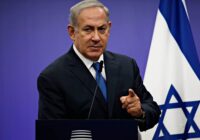Can Israel take advantage of new political openings in the Middle East?
At best, politics in the Middle East is shifty to the point of anarchy, but since the events of 2011, erroneously called the “Arab Spring,” the region has become completely chaotic. Whatever the basic causes of this volcanic eruption are somewhat dwarfed by the obvious consequences, chief among them the partial collapse of state systems in the post-independence era.
Yemen, Libya, Iraq and Syria are states by name, but in reality, they are failing political entities, engaged in civil wars that are focused on the question of identity and political stability. Other countries are grappling with the same problems, though not exercising the level of mayhem as the states mentioned. Taken together, it seems that we are now witnessing an updated version of the late Fouad Ajami’s description of the Arab predicament.
The Middle East Today
There are, at least, two important differences between previous crises in the Middle East and those today. First, the current Arab predicament is becoming an all-out European problem, because of the flow of refugees. Maybe it is too premature to talk about the Middle Easternization of Europe, but the process of it becoming so is well in sight.
However important it may be, this article dwells on the second important difference between the Arab predicament of then and now, which is the changing role of Israel.
Israel, the traditional bogeyman of Arab and Middle East politics, has not suddenly become the favorite, likable neighbor—it is far from it. However, other things are happening, and they have a basic cause and also carry the potential of important future implications.
Egypt under President Abdel Fattah al-Sisi returned its ambassador to Israel after three years of absence. The Egyptians and Israelis did so amid the turmoil in the disputed territories of the West Bank, and at a time when the Palestinian Authority is threatening to sever whatever relationship it still has with Israel. Egypt voted in favor of Israel in the United Nations in November 2015, and while it was not on a significant issue, it was a symbolic gesture. In fact, it was the first time Egypt voted in favor of Israel since 1948. Additionally, Egyptian aircraft were allowed to fly over Israel in order to monitor Gaza, among many more examples.
So, what is happening?
Well, in one respect, the implications of the events of 2011 and afterward are such that, even with regard to Israel, the most important Arab state is following the political science textbook, rather than the book of hatred, and is applying the simple, old rule of “the enemy of my enemy is my friend.” Hamas is the Palestinian branch of the Muslim Brotherhood and, therefore, an enemy of Sisi.
Iran sends its long hands to Gaza, again an enemy of Sisi. Turkey, under President Recep Tayyip Erdogan, is another foreign power that positioned itself against the Egyptian leader and also against Israel. Erdogan is interested in a rapprochement with the Israelis, but it is worth noting that Egypt asked Israel to prevent Turkey from having any foothold in Gaza. The bogey man of the Middle East is becoming a participant in the regional game. This is not a revolutionary change, but an important one.
Regarding Egypt, relations with Israel are opening, but much less so in the case of Saudi Arabia. The kingdom is still the most impeccable Sunni Arab adversary state of Israel. Wahhabism rules supreme and the Jews were never the favorites of the House of Saud. That said, the reality of the Middle East post-2011 is also having an effect in this circumstance. Much is happening behind the scenes in Saudi Arabia, but the little we know is important nonetheless.
Saudi Arabia and Israel are engaged in an active political and strategic dialogue, with Iran and the United States in the background. The Iranian nuclear program is now internationally sanctioned, and it is something the Saudis are as vehemently against as the Israelis. For them, the modern-day Sunni-Shia conflict is being exacerbated by Iran’s intervention in Yemen, Iraq, Lebanon and Syria. The US also poses a problem, because both Israel and Saudi Arabia have lost their faith in the Obama administration.
Israel’s Caveat
A basic problem is emerging, which is the inevitable byproduct of 2011 and afterward. Arab regimes have lost their self-confidence—they feel threatened by forces that they find hard to control, or even contain. The Islamic State is one of them, as well as other jihadists and extremists like al-Qaeda and the Muslim Brotherhood, Iran and Shia Islam, and the changing role of the Obama administration. In a time like this, of extreme concern and high level of unpredictability, old habits may still die hard, but somehow dying they are. Israel is the unpleasant neighbor around, but maybe the one so needed to help weather the storm.
So, where is Israel in all that?
One thing is for sure: The Netanyahu government, and the Israeli public at large, like the idea that there are new political openings for Israeli policy in the Middle East. But in a typical Israeli way, they are divided as to what policy. Prime Minister Benjamin Netanyahu is the key man because barring a political disaster, he will remain in office throughout 2016.
He is also the key because he does not favor political and diplomatic initiatives that may risk his right-wing coalition. Here is a catch, the prospect, the challenge for Netanyahu: Stop being a politician, be a statesman and go after the newly opening, moderate Sunni option. But for that to happen, he has to disengage from the current coalition and form a new one with Yair Lapid’s Yesh Atid Party, and possibly the Labor Party, so that he can do something with regard to the Palestinians.
No progress with Sunni states can happen without a change with regard to the Palestinians. Even in the case of Egypt, the current honeymoon is so fragile, mainly because of the events in the West Bank. Progress with the Palestinians requires the Israelis to go along, because Israel is stronger when it has more cards to play with.
It is the role of the statesman to play first. Will Netanyahu live up to the challenge? This is unlikely, but he can surprise, and he knows that there are some tangible rewards awaiting Israel. No, open relations with Saudi Arabia and other Arab Gulf states may still be way ahead in time, but the journey should and could start in 2016.
The views expressed in this article are the author’s own and do not necessarily reflect Fair Observer’s editorial policy.
Photo Credit: Yakub88 / 360b / Shutterstock.com
 We bring you perspectives from around the world. Help us to inform and educate. Your donation is tax-deductible. Join over 400 people to become a donor or you could choose to be a sponsor.
We bring you perspectives from around the world. Help us to inform and educate. Your donation is tax-deductible. Join over 400 people to become a donor or you could choose to be a sponsor.
Support Fair Observer
We rely on your support for our independence, diversity and quality.
For more than 10 years, Fair Observer has been free, fair and independent. No billionaire owns us, no advertisers control us. We are a reader-supported nonprofit. Unlike many other publications, we keep our content free for readers regardless of where they live or whether they can afford to pay. We have no paywalls and no ads.
In the post-truth era of fake news, echo chambers and filter bubbles, we publish a plurality of perspectives from around the world. Anyone can publish with us, but everyone goes through a rigorous editorial process. So, you get fact-checked, well-reasoned content instead of noise.
We publish 2,500+ voices from 90+ countries. We also conduct education and training programs
on subjects ranging from digital media and journalism to writing and critical thinking. This
doesn’t come cheap. Servers, editors, trainers and web developers cost
money.
Please consider supporting us on a regular basis as a recurring donor or a
sustaining member.
Will you support FO’s journalism?
We rely on your support for our independence, diversity and quality.







